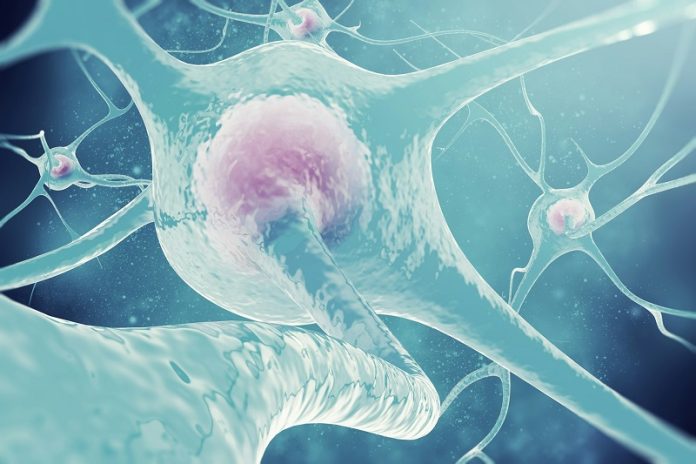
Scientists at Cedars-Sinai have found a way to restore the function of key brain immune cells in mice with Alzheimer’s disease—an advance that could lead to new treatments for humans.
Their study, published in Nature Aging, shows that increasing the amount of a specific enzyme, called angiotensin-converting enzyme (ACE), in brain immune cells known as microglia helped protect the brain, reduce damage, and even improve memory and learning in the animals.
Microglia are the brain’s cleanup crew, responsible for removing harmful debris, including amyloid plaques—sticky clumps of protein linked to Alzheimer’s symptoms.
In people with the disease, microglia can become “exhausted” and lose their ability to do this vital job.
In this study, the researchers used gene-editing techniques to make laboratory mice both prone to Alzheimer’s-like brain changes and capable of producing more ACE in their microglia.
The results were striking: the mice had fewer amyloid plaques, less neuron damage, and healthier connections between brain cells. Even more promising, the mice performed significantly better on memory and learning tests.
“We essentially supercharged the microglia and seemed to restore them to full function,” said senior author Warren Tourtellotte, MD, PhD, professor of Pathology and Laboratory Medicine, Neurology, Neurosurgery, and Biomedical Sciences at Cedars-Sinai.
“This allowed them to clear the brain of amyloid plaques and reverse neurodegeneration and cognitive decline.”
The next challenge, Tourtellotte explained, is to determine whether the same biology exists in human microglia.
If it does, the findings could pave the way for cell-based therapies that boost ACE in the brain, either as a standalone treatment or in combination with other Alzheimer’s drugs.
Alzheimer’s disease affects more than 7 million people in the United States alone, causing progressive memory loss, cognitive decline, and eventually loss of independence. There is no cure, and current treatments mainly aim to slow progression rather than reverse damage.
“Scientific discovery is the key to developing treatments that will help us overcome Alzheimer’s disease,” said Nancy L. Sicotte, MD, chair of the Department of Neurology at Cedars-Sinai. “This kind of innovative research brings us one step closer to that goal.”
While these results are still early and based on animal studies, the research offers a hopeful glimpse into how re-energizing the brain’s immune system might one day help people living with Alzheimer’s regain some of their lost abilities.
If you care about health, please read studies about the best time to take vitamins to prevent heart disease, and vitamin D supplements strongly reduce cancer death.
For more health information, please see recent studies about plant nutrient that could help reduce high blood pressure, and these antioxidants could help reduce dementia risk.
Source: KSR.



